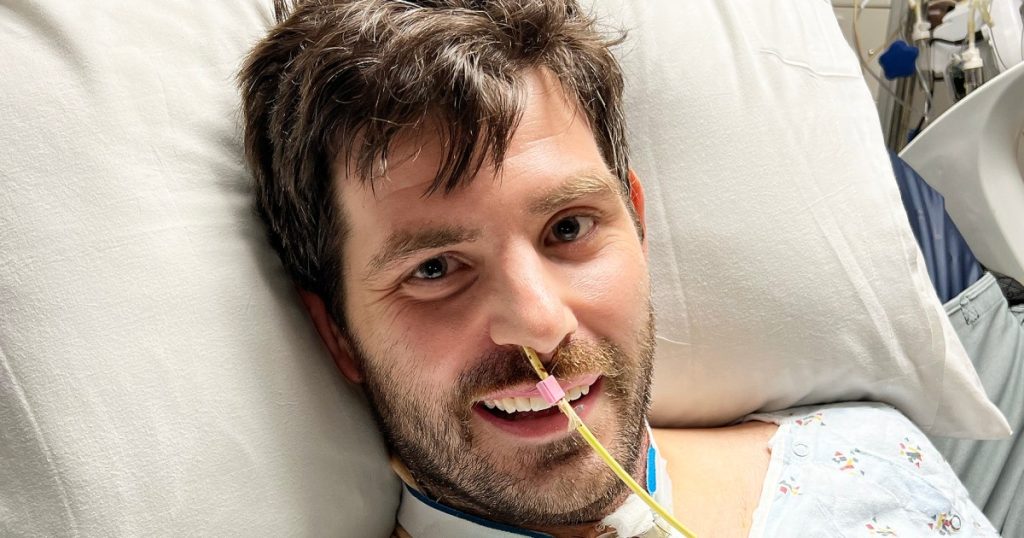Dr. William Dugal, a 34-year-old surgeon from Winston-Salem, North Carolina, contracted Covid-19 in the fall of 2022 and developed Guillain-Barre syndrome, a rare post-viral complication that caused him to become completely paralyzed. Despite being unable to move, swallow, or breathe unassisted, Dugal remained mentally sharp throughout his ordeal, feeling fear and uncertainty about the severity of his illness.
The progression of Guillain-Barre syndrome can vary from muscle weakness to full paralysis, with some cases requiring ventilation for breathing support. While most individuals recover fully or experience minor symptoms after the condition resolves, others may face long-term complications, including paralysis. The condition can be fatal if it affects the muscles used for breathing, and there is no definitive treatment for Guillain-Barre syndrome.
After being placed on a ventilator to assist his breathing, Dugal experienced a near-death moment when his lungs collapsed, leading to the need for ECMO, a machine that temporarily takes over heart and lung function. Following a nine-day ordeal on ECMO, Dugal began the slow process of recovery, facing challenges such as muscle weakness, feeding tube dependency, and limited mobility. He eventually progressed to in-patient rehabilitation, where he focused on relearning basic tasks and regaining strength.
Despite the difficulties of rehabilitation, Dugal found a sense of control in working towards recovery. With the support of his family and healthcare team, he gradually regained his physical strength and was eventually able to return home. Using innovative technology for surgical training, Dugal practiced his skills and prepared to resume his career as a surgeon. His experience with Guillain-Barre syndrome gave him a new perspective on patient care and empathy.
Almost a year after his initial Covid-19 infection, Dugal returned to work in a lab conducting surgical studies and later pursued an ECMO fellowship, where he helped other patients receive the same life-saving treatment that had saved his life. For Dugal, the opportunity to provide care and support to others in similar situations felt like a privilege. Looking ahead, he plans to continue his medical career with a general surgery fellowship, grateful for the chance to make a difference in the lives of patients as both a doctor and a survivor of Guillain-Barre syndrome.


